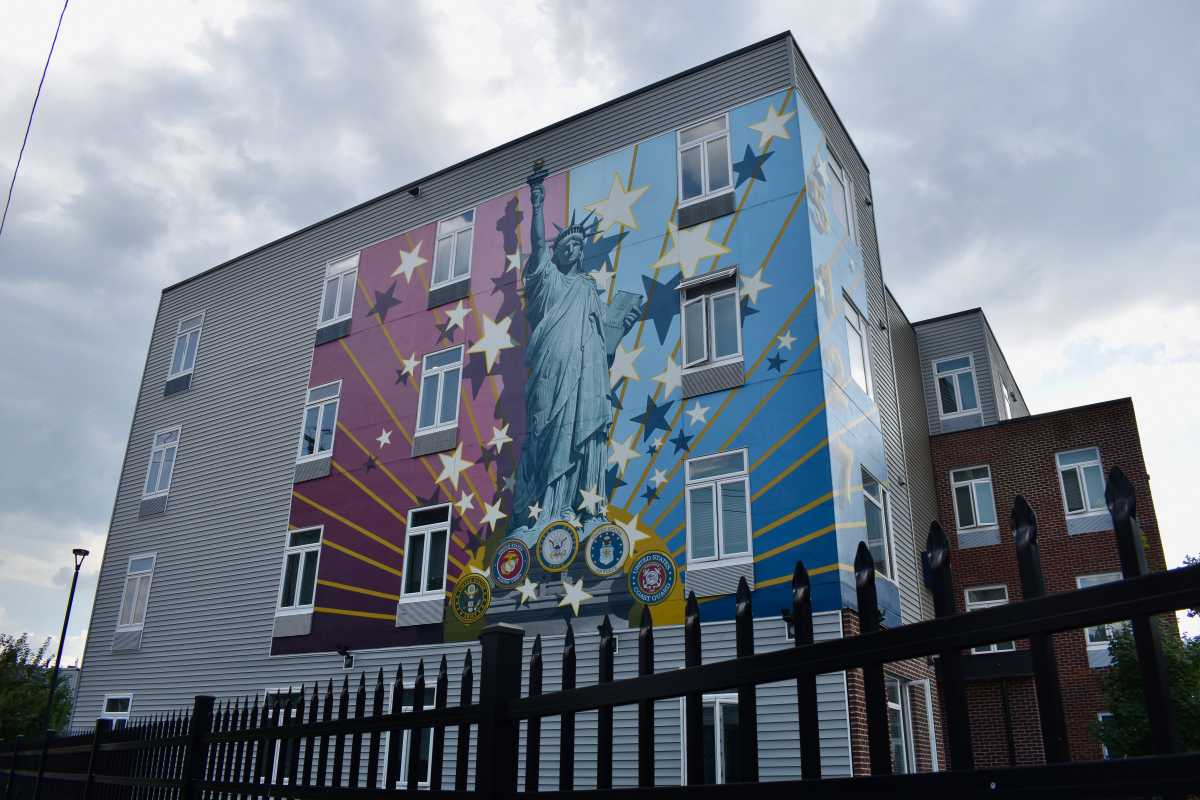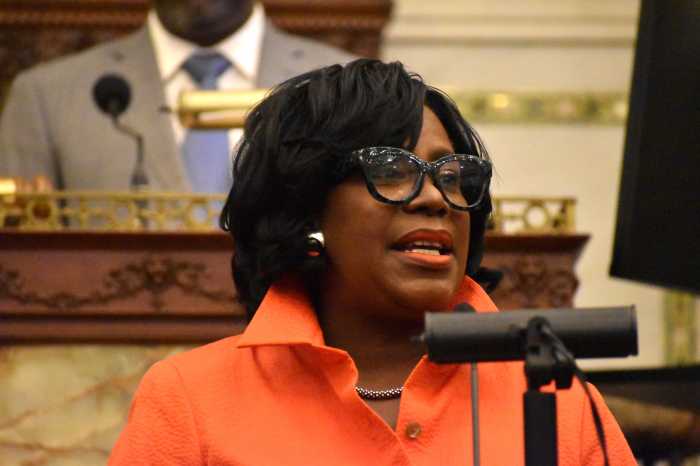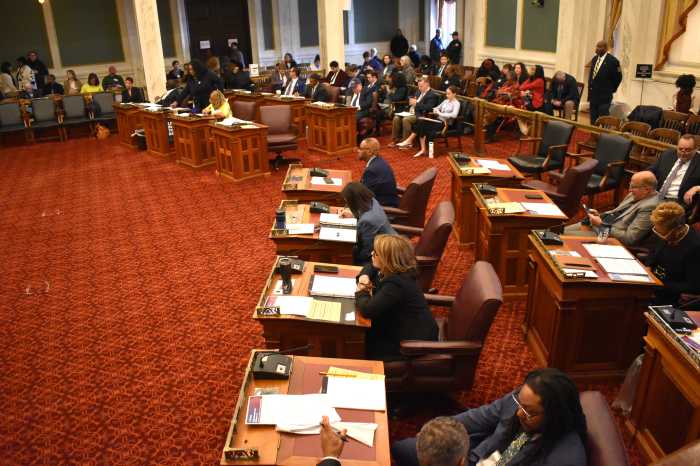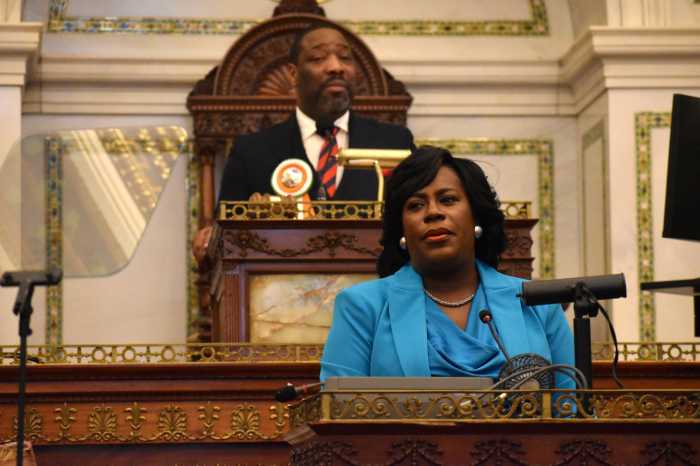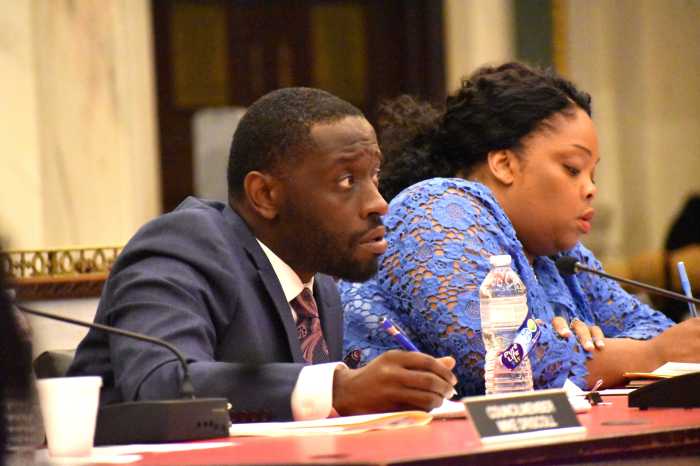A few men rejoiced on a recent weekday afternoon when they heard apartment managers are planning to erect a flagpole and fly “Old Glory” outside their Frankford apartment building.
Robert Schmal, a resident, volunteered to raise the American flag each morning. The complex already has a patriotic mural featuring the Statue of Liberty, but that wasn’t enough, added another tenant, Rubin Rios.
Rios, Schmal and their neighbors don’t live in a typical building. The Veterans Village Bernard Spain Campus contains 47 units – from studios to three-bedrooms – reserved for those who served in the military.
It opened a little more than a year ago at Duffield and Pratt streets with the aim of serving veterans dealing with homelessness and housing insecurity. And, while there have been challenges, the project’s developer, Dana Spain, believes the complex could serve as a model for affordable housing across the country.
Men and women – hailing from different branches of the armed forces – share a common room, and ages range from 23 to hovering around 80. Multiple children, including a baby, live in the building. Veterans Village is nearly full, with a waitlist for studio and one-bedroom apartments, according to Spain.
“I’ve never lived amongst other veterans, so that’s, I think, a positive thing,” added Rios, who spent 20 years in the U.S. Navy and has lived in the building since December.
Rent is subsidized for a bulk of the residents, though some tenants do pay directly, Spain said. Veterans must have received an honorable discharge.
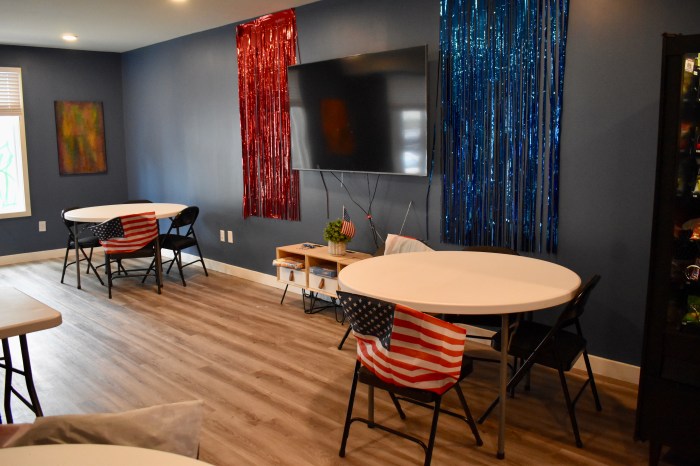
A community manager, Lateefah Brunson, coordinates with case managers if necessary, but the Spain campus is independent living and residents can live there as long as they desire.
“I have veterans that work and some that are retired,” Brunson told Metro. “They’re all from different walks of life.”
Schmal, a 68-year-old U.S. Army veteran, was living in temporary housing before moving into Veterans Village. He has also been homeless, an experience he described as “awful,” but preferred not to discuss.
He credits staff from the Veterans Multi-Services Center, as well as Brunson, for helping him live independently again.
“It was a team effort,” said Schmal, who did two tours in Kuwait. “I could have never done it alone.”
Veterans have historically had higher rates of homelessness than the general population, partially due to the challenges of reintegrating into civilian life, as well as many of the same risk factors anyone could face – drug abuse, mental illness and low income.
Nationwide, the number of homeless veterans has declined 52% since 2010, according to the U.S. Department of Housing and Urban Development. Data from the Philadelphia Office of Homeless Services’ annual Point-in-Time census counted 157 veterans in 2022, down from 249 in 2019.
Many Spain campus residents utilize the HUD-VASH program, which combines a Section 8-style voucher with services from the U.S. Department of Veterans Affairs. The Philadelphia Housing Authority administers about 930 HUD-VASH vouchers.
Before undertaking Veterans Village, Dana Spain ran a transitional homeless shelter for female veterans in West Philadelphia and found that the women had few high quality options for permanent housing.
“As much as people spend a lot of money, time and effort on combating homelessness, there’s a piece missing that once people aren’t actively homeless anymore, the bottom falls out,” she said.
“It’s great to have vouchers, but if you give somebody a voucher and there’s no inventory for them to use the voucher,” Spain added, “and if there is inventory, it’s not appropriate for where they are in their stage of life, then they have a piece of paper in their hand that is worthless.”
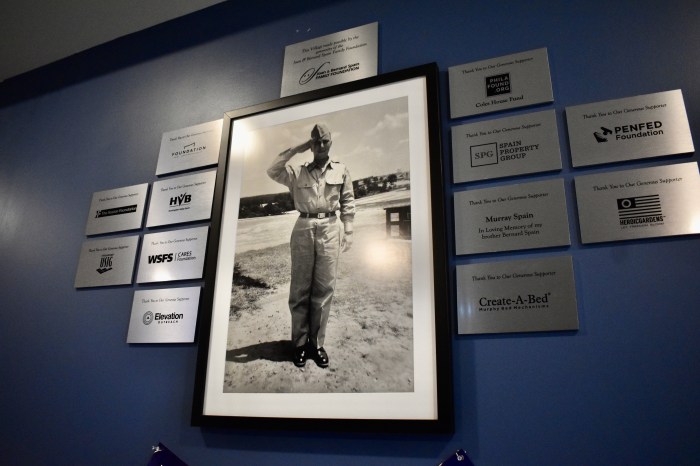
Her father, Bernard Spain, who died in 2021, encouraged her to pursue the idea of building Veterans Village. He was a veteran and an entrepreneur who held a copyright to the yellow smiley face and launched successful Dollar Express and Hallmark card chains.
Dana Spain has a background in real estate development, and her nonprofit was able to raise $6 million in private funding to construct the campus. Residents began moving in last summer.
A plan for a Veterans Village in Chicago specifically for female veterans “ran into some political resistance” and fell through, Spain said; however, the organization is in talks with elected officials and veterans organizations about additional projects in New Jersey, Pennsylvania and Florida, she told Metro.
Veterans Villages, the nonprofit, was originally housed under the foundation of Volumetric Building Companies, a modular construction firm. While VBC is still a building partner, the organization was spun off to focus solely on housing for veterans.
So far, the nonprofit has relied on philanthropy and smaller donations.
“We have to raise money, because we do not receive any city, state or federal funding,” Spain said. “We can’t raise rents.”
Spain explained that they did not seek government money for the Frankford campus because they wanted to show that such a project could be done. For future developments, Veterans Village would be open to accept public funds as long as there are not “a myriad of strings attached and hoops of fire that you have to jump through,” she said.
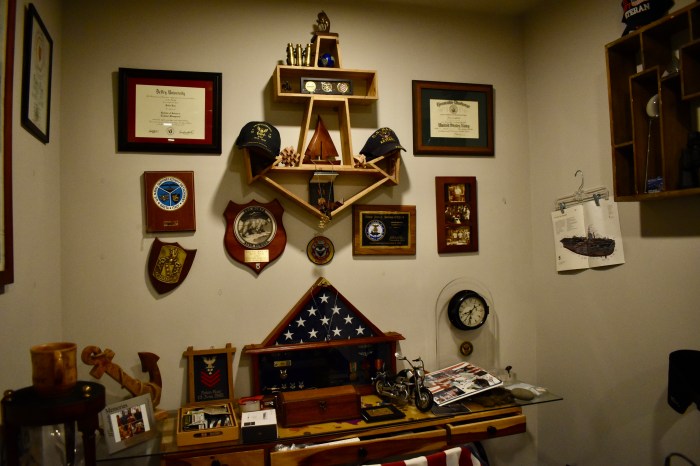
Funding has not been the only challenge.
The mental health needs of some tenants have exceeded what can be offered through Veteran Village’s independent living model, and they have been referred to other facilities, said Cammie Delph, Spain’s executive assistant.
Additionally, she added, due to crime and nuisance activity in the neighborhood, the organization is fundraising to put a gate around the building’s parking lot.
Schmal said, on living with other veterans, “Some I get along with, and the ones I don’t, I don’t bother with.”
“It has its woes and its ups and downs,” added Leon Brantley, 74, a U.S. Army Vietnam War veteran who has lived at the Spain campus since it opened. He would like to see a resident committee to address disagreements and complaints.
Brantley, a repository for Frankford and greater Northeast Philadelphia history, served during the Tet Offensive and, six years after returning home, three of his children were killed in a house fire. He said he suffers from PTSD, severe rheumatoid arthritis and the effects of Agent Orange contamination.
Nonetheless, he is a self-proclaimed “flag-waver” who is proud of the fact that he and his ancestors have served in every major American military conflict.
“In a heartbeat, I would put back on my uniform and serve actively, if necessary, with whomever part of the government and establishment would have me,” Brantley told Metro.
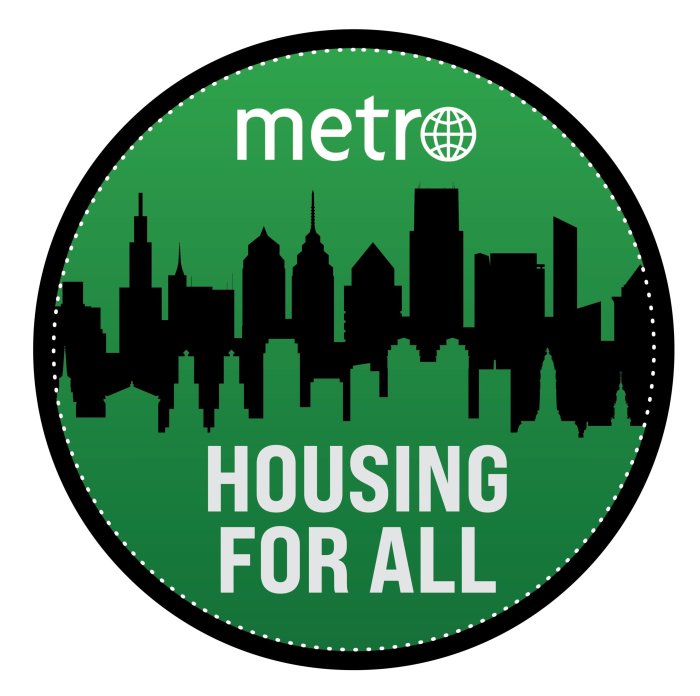
‘Housing For All’ is a two-year project in which Metro Philadelphia will investigate the city’s affordable housing crisis. It is made possible by The Lenfest Institute for Journalism’s Philadelphia Local News Sustainability Initiative grant.



